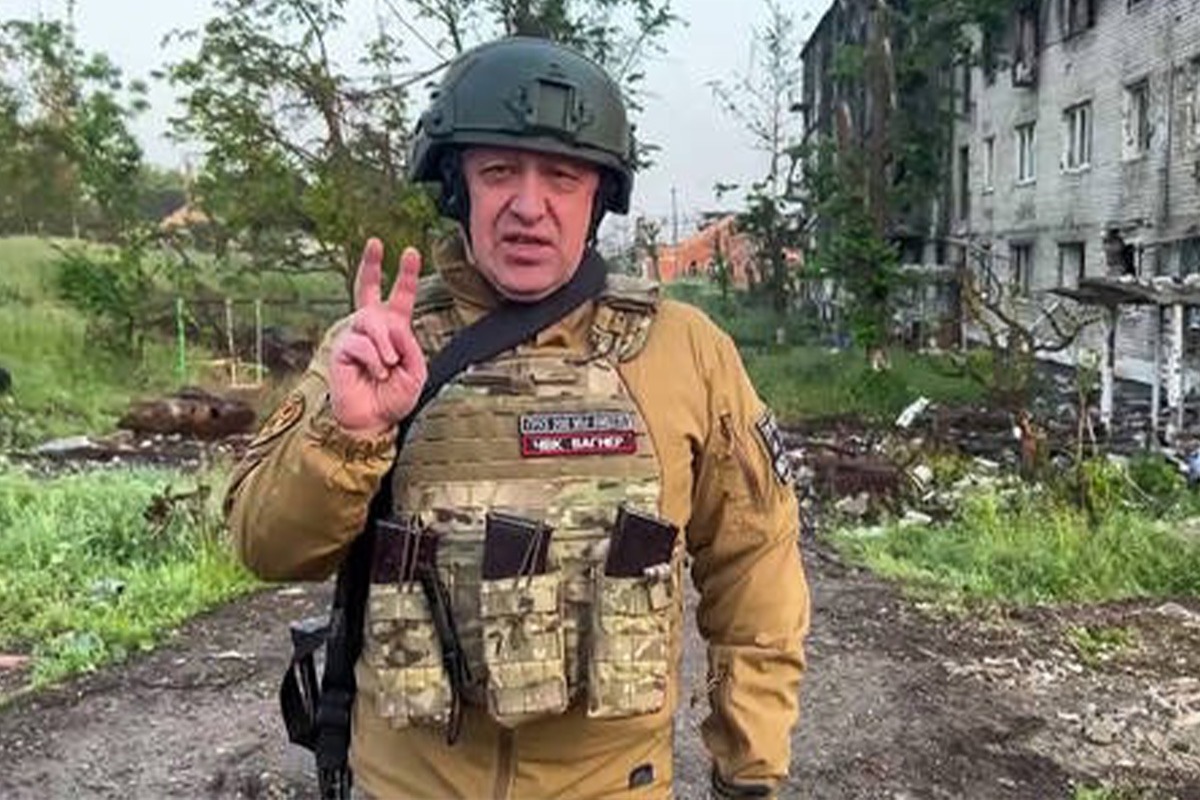NEW DELHI: Russia’s private military company Wagner chief Yevgeny Prigozhin was declared dead following a plane crash in the country’s northwest Tver region on Wednesday. However, many Russia watchers believe that it may not be true.
Russian Telegram channels are abuzz with explanations around his tragic fate of Prigozhin, who led an aborted coup against President Vladimir Putin two months back. The explanations shed light on the complex landscape of Russian politics, power struggles, and covert maneuvers.
One plausible theory suggests that Russian President Putin might have orchestrated Prigozhin’s death as an act of retribution for trying to overthrow his regime.
ALSO READ: Prigozhin’s death: Isolated event or part of bigger equation?
Prigozhin insisted that his short-lived rebellion was a “march of justice” to oust Russian defence minister Sergei Shoigu, whom he blamed for mismanaging the war in Ukraine and discriminating against his mercenaries in supply of weaponry, and not a challenge to President Putin’s authority. Researchers, however, highlight his decision to march on Moscow to emphasize that ‘Putin’s chef’ had clear intentions of taking matters into his own hands directly.
Another theory posits that someone within the military, who was at the target of Prigozhin’s revolt, could have orchestrated the plane crash. Prigozhin’s history of openly targeting military leaders may have made him a target for elimination.
The most intriguing theory is that Prigozhin might not actually be dead. In 2019, he “died” in a military plane crash in Congo but resurfaced again in public a few days later. Wagner linked Telegram channels have claimed that he typically used another plane for travel, and his penchant for adopting aliases further complicates the situation. Media reports also suggest that a second aircraft with links to Wagner was seen on flight radar in the vicinity of the crash. After the crash, the plane returned and safely landed in Moscow.
ALSO READ: Wagner boss, 9 others dead in Russia plane crash
Prigozhin’s clout within Russia’s power dynamics cannot be underestimated. Popularly known as ‘Putin’s Chef’, he rose to prominence by carrying out successful military campaigns in several African nations and Syria to expand Russian influence and safeguard its interests abroad.
His ambitions for influence and power brought him into direct conflict with Putin’s regime, leading to a high-stakes power struggle. In a statement, President Putin said he was a brilliant businessman who “made serious mistakes” in life.
Prigozhin was sent to neighbouring Belarus under the peace pact which ended the mutiny. In the following days, he made public appearances in several parts of Russia, including at the African-Russia Summit in St. Petersburg and released a video from Africa just a few days before the plane crash.
His involvement in various geopolitical ventures, including supporting Bashar Al-Assad in Syria, had made him both a tool and a thorn in Putin’s side.

